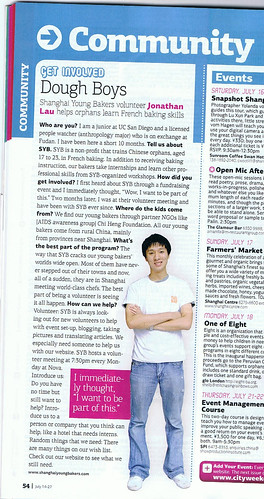This is the first post for the 500 Interns Competition and one of the 3 posts for 30 companies (#3for30) explaining why I would be the ideal start up intern.
Months ago I read Paul Graham’s essay What we look for in Founders and was inspired to write an introspective blog post responding to it. I copied and pasted the excerpt below in a word document saved it and then promptly forgot about it.
“4. Naughtiness
Though the most successful founders are usually good people, they tend to have a piratical gleam in their eye. They're not Goody Two-Shoes type good. Morally, they care about getting the big questions right, but not about observing proprieties. That's why I'd use the word naughty rather than evil. They delight in breaking rules, but not rules that matter. This quality may be redundant though; it may be implied by imagination.
Sam Altman of Loopt is one of the most successful alumni, so we asked him what question we could put on the Y Combinator application that would help us discover more people like him. He said to ask about a time when they'd hacked something to their advantage—hacked in the sense of beating the system, not breaking into computers. It has become one of the questions we pay most attention to when judging applications.”
However, when I saw the 500 Interns Competition I could not think of a better topic to write about that would begin to demonstrate why I would be an ideal startup intern. I dusted the old file off and here is the result!
-----------------------------------------------------------------------------------------------
The “naughtiness” started while I was young, when my parents were the one and only “system.” I must have been one hell of a kid to raise because I was always trying to find ways around my parent’s rules since most of them never made any sense to me.
One of my parent’s rules was that they would never buy me a game console, so while my friends were happily gaming away on their N64s, Playstations and Gameboys, I had to make due with just my computer. However, I saw the light when a family friend built a computer for us and had preinstalled Pokemon Blue for Gameboy color on it. Fueled with a dream, I learned as much about computers as I could and in no time, I was playing away on my Gameboy Advance emulator. From then on, my interest in emulation and computers grew and I was playing all sorts of console and arcade games on my computer.
Fast forward a decade and I can still be found committing mischief, whether it is social engineering my way to the front of the bank line or rerouting the switch for my building to get more bandwidth. Growing up, however, has led me to put my hacking mentality to more constructive uses.
Rules and common practice inevitably create limitations and I have discovered that I find joy in discovering creating methods to overcome these limitations. One example, is the work I am doing for Shanghai Nonprofit Incubator’s One Egg One Dream project. As a nonprofit, funds and expertise are always in short supply so when I was confronted with the problem of translating marketing collateral from Chinese to English, I had to get creative. In the beginning I thought of asking the students in my UC program to help with the translations, but few of them could read Chinese. In addition, due to a lack of incentive or accountability, reliability and timeliness was going to be an issue.
That is when I devised the idea to crowd source the translation, recalling that is how Twitter and Facebook did it. If I broke up the literature into bite size chunks and posted them on an online community with Chinese and English speakers, maybe the community would translate them because it was for a good cause. That is when I remembered, my roommate had handed me card from someone at italki.com, a language learning community. The italki community turned out to be exactly what I was looking for, an active community with many bilingual Chinese and English speakers. After thinking it through a little more, I realized that this plan was scalable. If Shanghai NPI could build a reputation on italki.com, it could reliably use the italki community to translate for their future projects.
The emulation and italki stories are just one of many where I come up with a creative solution by drawing upon my past experience and inability to accept business as usual. I do not want to say I was born ready to join a startup because that would be ridiculous. However, I would like to believe that throughout my life, I have demonstrated a creative and disruptive mindset that pairs well with the startup culture and an ideal startup intern.

No comments:
Post a Comment